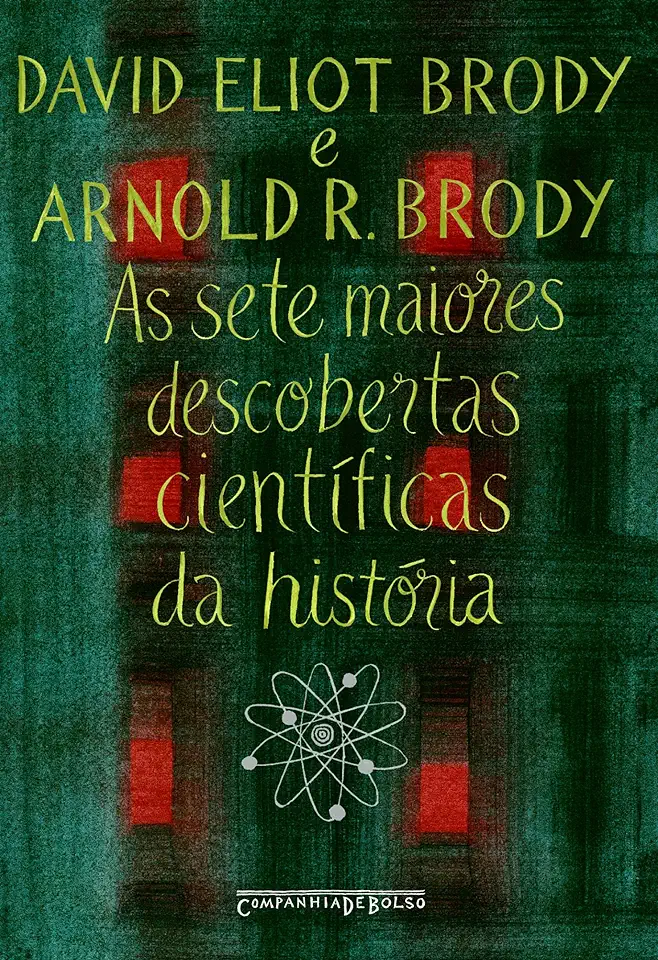
The Seven Greatest Scientific Discoveries of History - David Eliot Brody and Arnold R. Brody
The Seven Greatest Scientific Discoveries of History: A Journey Through the Genius of Human Curiosity
Introduction: Unveiling the Wonders of Scientific Exploration
In the annals of human history, certain scientific discoveries stand out as beacons of intellectual brilliance and transformative power. These groundbreaking achievements have not only expanded our understanding of the natural world but have also revolutionized our way of life. In their captivating book, "The Seven Greatest Scientific Discoveries of History," David Eliot Brody and Arnold R. Brody embark on an enthralling journey, delving into the stories behind these remarkable breakthroughs and the extraordinary minds that brought them to life.
Chapter 1: The Birth of Modern Science - Copernicus and the Heliocentric Theory
The book begins with the groundbreaking work of Nicolaus Copernicus, the Polish astronomer who challenged the prevailing geocentric model of the universe. Through meticulous observations and mathematical calculations, Copernicus proposed the revolutionary idea that the Earth revolves around the Sun, forever altering our perception of our place in the cosmos.
Chapter 2: Unlocking the Secrets of Nature - Galileo and the Scientific Method
Galileo Galilei, the Italian polymath, emerges as a pivotal figure in the scientific revolution. Armed with his telescope, Galileo made groundbreaking observations of the heavens, providing empirical evidence that supported Copernicus's heliocentric theory. His pioneering use of the scientific method, emphasizing experimentation and observation, laid the foundation for modern scientific inquiry.
Chapter 3: The Laws of Motion and Universal Gravitation - Newton and the Triumph of Reason
Isaac Newton, the English physicist and mathematician, stands as one of the greatest scientific minds of all time. His formulation of the three laws of motion and the law of universal gravitation revolutionized our understanding of the physical world. Newton's work laid the groundwork for classical mechanics and ushered in a new era of scientific understanding.
Chapter 4: The Power of Electricity and Magnetism - Faraday and Maxwell's Unifying Vision
Michael Faraday, the English scientist, and James Clerk Maxwell, the Scottish physicist, made groundbreaking discoveries in the realm of electricity and magnetism. Faraday's experiments with electromagnetic induction paved the way for the development of electric generators and transformers, while Maxwell's unification of electric and magnetic phenomena into a single theory of electromagnetism stands as a testament to the power of theoretical physics.
Chapter 5: The Structure of the Atom - Rutherford and the Birth of Nuclear Physics
Ernest Rutherford, the New Zealand-born physicist, revolutionized our understanding of the atom through his pioneering experiments with alpha particles. His discovery of the atomic nucleus and the concept of subatomic particles laid the groundwork for nuclear physics and opened up new frontiers in scientific exploration.
Chapter 6: The Double Helix and the Secrets of Life - Watson and Crick's Revolutionary Discovery
James Watson and Francis Crick, the American and British scientists, achieved scientific immortality when they unraveled the structure of DNA, the molecule that holds the blueprint of life. Their discovery of the double helix marked a watershed moment in biology, paving the way for advancements in genetics, biotechnology, and our understanding of the very essence of life.
Chapter 7: The Expanding Universe and the Big Bang Theory - Hubble and the Mysteries of Cosmology
Edwin Hubble, the American astronomer, made groundbreaking observations that revealed the expansion of the universe and the existence of galaxies beyond our own. His work led to the formulation of the Big Bang theory, providing a comprehensive explanation for the origin and evolution of the cosmos.
Conclusion: A Legacy of Scientific Triumphs and Endless Possibilities
"The Seven Greatest Scientific Discoveries of History" is a captivating journey through the minds of scientific giants and the groundbreaking discoveries that have shaped our world. Brody and Brody weave a compelling narrative, blending historical context, scientific explanations, and personal anecdotes to bring these remarkable achievements to life. This book is a must-read for anyone fascinated by the power of human curiosity and the transformative impact of scientific discovery.
Enjoyed the summary? Discover all the details and take your reading to the next level — [click here to view the book on Amazon!]